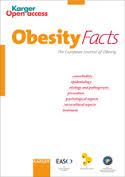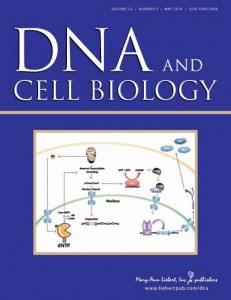The week at Retraction Watch featured a lawsuit over the authorship of a paper, and a look at when exactly a study should be retracted. Here’s what was happening elsewhere:
When should a paper be retracted? A tale from the obesity literature
 In our line of work, we see it all — mega-corrections that don’t quite rise to the level of retraction, letters to the editor that point out seemingly fatal flaws in papers that remain untouched, and studies retracted for what seem like minor reasons. It can make you wonder what makes a paper worthy of a retraction. A recent case in an obesity journal may not provide a definitive answer, but it gives us a lot to chew on.
In our line of work, we see it all — mega-corrections that don’t quite rise to the level of retraction, letters to the editor that point out seemingly fatal flaws in papers that remain untouched, and studies retracted for what seem like minor reasons. It can make you wonder what makes a paper worthy of a retraction. A recent case in an obesity journal may not provide a definitive answer, but it gives us a lot to chew on.
Here’s the story: In September 2013, Rosely Sichieri and a colleague from the State University of Rio de Janeiro submitted an article to Obesity Facts, “Unbalanced Baseline in School-Based Interventions to Prevent Obesity: Adjustment Can Lead to Bias?” The article examined statistical issues in randomized controlled trials of school-based weight loss programs. Peer reviewers said the paper needed major revisions before it could be accepted; the authors revised the paper enough in a second draft, submitted in November 2013, that the original reviewers accepted it. The paper was published in June 2014.
Then, in September 2014, a group of authors including David Allison of the University of Alabama, Birmingham, and colleagues from Clemson, Thomas Jefferson, and the University of Minnesota, wrote a critical letter that was published in the journal in April. The letter, according to a just-published editorial: Continue reading When should a paper be retracted? A tale from the obesity literature
Urology researcher in Iran up to six retractions
 A urologist in Iran has lost three papers in BJU International, bringing his retraction count to a half-dozen.
A urologist in Iran has lost three papers in BJU International, bringing his retraction count to a half-dozen.
In December 2013, we reported on three retractions by Mohammad Reza Safarinejad. None of those notices, about papers related to incontinence and erectile dysfunction, made the reasons for retraction very clear. After that post ran, Safarinejad told us that Hartmut Porst, former president of the European Society for Sexual Medicine, had raised questions about the data in a number of his papers. Porst confirmed that for us earlier this month.
All of the latest papers, about aspects of male sexual dysfunction, are being retracted due to “inappropriate” statistical analyses.
Here’s the notice for “Analysis of association between the 5-HTTLPR and STin2 polymorphisms in the serotonin-transporter gene and clinical response to a selective serotonin reuptake inhibitor (sertraline) in patients with premature ejaculation,” which has been cited 17 times, according to Thomson Scientific’s Web of Knowledge: Continue reading Urology researcher in Iran up to six retractions
Does peer review ferret out the best science? New study tries to answer
 Grant reviewers at the U.S. National Institutes of Health are doing a pretty good job of spotting the best proposals and ranking them appropriately, according to a new study in Science out today.
Grant reviewers at the U.S. National Institutes of Health are doing a pretty good job of spotting the best proposals and ranking them appropriately, according to a new study in Science out today.
Danielle Li at Harvard and Leila Agha at Boston University found that grant proposals that earn good scores lead to research that is more cited, more published, and published in high-impact journals. These findings were upheld even when they controlled for notoriously confounding factors, such as the applicant’s institutional quality, gender, history of funding and experience, and field.
Taking all those factors into consideration, grant scores that were 1 standard deviation lower (10.17 points, in the analysis) led to research that earned 15% fewer citations and 7% fewer papers, along with 19% fewer papers in top journals.
Li tells Retraction Watch that, while some scientists may not be surprised by these findings, previous research has suggested there isn’t much of a correlation between grant scores and outcomes:
Continue reading Does peer review ferret out the best science? New study tries to answer
Use of data “without permission,” bad authors list, and hidden funding sink mol bio paper
 A Chinese researcher has lost a paper after the journal discovered he published others’ research without permission and lied about the grant funding he used for the work.
A Chinese researcher has lost a paper after the journal discovered he published others’ research without permission and lied about the grant funding he used for the work.
Yihang Shen published a paper using his PhD research on the molecular biology of fetal rodent livers earlier this year in DNA and Cell Biology. Unfortunately, he didn’t have permission to publish the data. He also omitted the names of people who participated in the research, and listed an incorrect funding source.
The “cited grant,” according to the journal editor, was a grant awarded to Richard Finnell, a UT Austin researcher who often works with Shen’s PhD advisor at Shanghai Jiao Tong University, the well-known geneticist Fanyi Zeng.
Here’s the notice for “Characterization of Hydroxymethylation Patterns in the Promoter of b-globin Clusters in Murine Fetal Livers”: Continue reading Use of data “without permission,” bad authors list, and hidden funding sink mol bio paper
Author from China blames translation company for plagiarism in retracted vascular paper
 Do we need a “throwing vendors under the bus” category here at Retraction Watch?
Do we need a “throwing vendors under the bus” category here at Retraction Watch?
Earlier this year, we reported on the retraction of a paper because of sloppy work by an outside lab. Now, we have the story of a retraction for “negligence” by a translator. Specifically, the author says the passages shared between the retracted 2015 vascular paper and another paper in EMBO Journal are a result of “negligence on the part of the translation company that I trusted to make my manuscript ready for submission.”
Here’s more from the notice in the Asian Pacific Journal of Cancer Prevention, written by Yong Jiang, of Laboratory Medical College, Jilin Medical College, China: Continue reading Author from China blames translation company for plagiarism in retracted vascular paper
Skeleton crew’s second paper broken over methodology issues; more retractions to appear

Bone researcher Olga Panagiotopoulou of the University of Queensland has lost a second paper over “errors in the validation protocol and data.”
The retracted paper in the Journal of Biomechanics, about primate jaws, was subject to an expression of concern in May 2014 November 2013, one of two Panagiotopoulou’s group issued last year over methodological problems. The other paper was later retracted. According to Panagiotopoulou, there will be two more retractions forthcoming, both in the Journal of Anatomy.
According John Hutchinson, last author of the other retracted paper, that withdrawal was the result of an investigation at his school, the Royal Veterinary College.
Panagiotopoulou emailed us with an explanation:
Bielawski and Wiggins retraction count grows to six
 A group of chemists whose work was investigated by the University of Texas-Austin has had another paper retracted, this one of a Chemical Science study previously subjected to an Expression of Concern.
A group of chemists whose work was investigated by the University of Texas-Austin has had another paper retracted, this one of a Chemical Science study previously subjected to an Expression of Concern.
That makes six retractions for Christopher Bielawski and Kelly Wiggins.
Here’s the notice for “Homonuclear bond activation using a stable N,N′-diamidocarbene”, signed by all three authors of the paper: Continue reading Bielawski and Wiggins retraction count grows to six
Authorship issues spell retraction for breast cancer paper
![]() The corresponding author of a 2014 paper in the Indian Journal of Medical and Paediatric Oncology has retracted the article because he was a bit too generous with his list of coauthors.
The corresponding author of a 2014 paper in the Indian Journal of Medical and Paediatric Oncology has retracted the article because he was a bit too generous with his list of coauthors.
The article, “Outcome of neoadjuvant chemotherapy in locally advanced breast cancer: A tertiary care centre experience,” reviewed medical records from a local population of breast cancer patients treated with chemotherapy. It came from a group at the Post Graduate Institute of Medical Education and Research, in Chandigarh. The first author was Tapesh Bhattacharyya, followed by four other names.
According to the notice: Continue reading Authorship issues spell retraction for breast cancer paper
Biology team with two retractions now correcting references to nixed papers
 A team of biologists that retracted two papers after being “unable to replicate some of the results obtained by the first author of the paper” has now issued a correction to fix references to the two sunk publications.
A team of biologists that retracted two papers after being “unable to replicate some of the results obtained by the first author of the paper” has now issued a correction to fix references to the two sunk publications.
The corrected paper is a review in the Journal of Virology — known there as a Gem — which discusses how viruses use the membranes of endoplasmic reticulum (ER) to replicate.
The two retractions were not signed by their first author, Riccardo Bernasconi, who won the STSBC-Roche Diagnostics award for one of the papers in 2012. The correction carries all three authors’ names, including Bernasconi’s (as second author).
Here’s more from the correction for “How Viruses Hijack the ERAD Tuning Machinery”: Continue reading Biology team with two retractions now correcting references to nixed papers